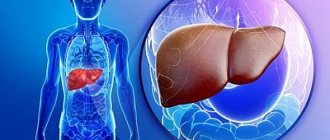Anonymously
Around the clock
Attention! The material contains information about substances, the use of which can cause serious harm to your health!
Nicotine addiction is one of the most common addictions. About 79 percent of people smoke a pack a day. Many people think that this is self-indulgence, but the effects of nicotine on the body are extremely negative.
- What is nicotine?
- Nicotine composition
- Chemical formula
- The effect of smoking nicotine: mechanism of action
- How is addiction formed?
- The benefits of nicotine
- Nicotine test
- How much nicotine is removed from the blood?
- Nicotine in the blood
- Nicotine in urine
- How to remove nicotine
- Types of nicotine
- Salt nicotine
- Liquid nicotine
- Nicotine in cigarettes
- Harm of nicotine to the human body
- Nicotine and the lungs
- The effect of nicotine on blood vessels
- The effect of nicotine on women's health
- Effect of nicotine on human development
- The effect of nicotine on fetal development
- The harm of nicotine to the brain
- Effect of nicotine on blood: red blood cells
- Effect of nicotine on the nervous system
- Effect of nicotine on the stomach
- The effect of nicotine on a teenager
- Nicotine addiction treatment
We will select an individual treatment plan
Free consultation 8-800-200-27-23
What is nicotine?
Nicotine is an alkaloid that is released from the shoots of plants of the nightshade family (tomato, eggplant, tobacco, regular potatoes). The main synthesis occurs in the roots, and the accumulation of nicotine occurs in the leaves and shoots. The maximum concentration of nicotine found in tobacco is about 14 percent.
Nicotine composition
Nicotine is made up of carbon, hydrogen and nitrogen atoms. Almost all alkaloids affect the human nervous system. For example, caffeine, cocaine and morphine. The physical and organoleptic properties are as follows - nicotine is a bitter, oily, dark liquid. At certain temperatures it mixes easily with water.
Chemical formula
The effect of smoking nicotine: mechanism of action
Nicotine in the blood quickly enters the brain, stimulating certain receptors. A person feels a surge of strength, improved mood, and relaxation. Dopamine (the joy hormone) is actively produced, and nicotine begins to integrate into the body's metabolic processes. It’s not for nothing that smokers definitely need to smoke a cigarette after eating, sleeping, etc.
There are no special enzymes in the body that could break down nicotine into safe compounds. Therefore, the toxic effect of the substance is quite strong.
How is addiction formed?
After the first cigarette smoked, a person does not feel any pleasure - nausea, dizziness, and increased salivation begin. However, in most cases, the future smoker overcomes the unpleasant symptoms and continues smoking.
A cigarette is most often associated with something pleasant, for example, a friendly conversation, a party. Rest from work, etc. In most cases, people start smoking in adolescence, when they want to appear more mature and respectable.
Since nicotine enters the body continuously, it is integrated into almost all systems. As soon as the effect of the substance wears off, the smoker begins to feel an urgent need for cigarettes.
HOW TO MOTIVATE A DEPENDENT FOR TREATMENT
The benefits of nicotine
Nicotine is widely used in medicine, and here's why:
- Accelerates thinking abilities and reactions.
- Has anti-inflammatory properties.
- Has antidepressant properties.
- Normalizes appetite in case of constant craving to eat something.
- May prevent the development of Alzheimer's disease.
But if this substance has such beneficial properties, then why is smoking harmful to health? The answer is simple - most of the harmful effects come from burning the cigarette. A person, along with nicotine, inhales carcinogens and other toxic components. Don’t forget about the financial side - buying cigarettes breaks a significant hole in the budget.
Nicotine test
The test for the presence of nicotine in the body is carried out by checking the urine. If it contains cotinine (a breakdown byproduct), then we can talk about smoking or another method of ingesting nicotine.
How long does nicotine last?
Whenever you smoke or chew tobacco or inhale secondhand smoke from a cigarette, nicotine is absorbed into your bloodstream.
From there, enzymes in your liver break down most of the nicotine to become cotinine. The amount of cotinine will be proportional to the amount of nicotine you consume. These substances are eventually eliminated through your kidneys in the form of urine.
Cotinine, the main breakdown product of nicotine, can usually be detected in your body for up to three months after ingestion. How long it stays in your system will depend on how you take nicotine and how often.
Keep reading to find out how long nicotine can be detected in your urine, blood, saliva and hair.
How much nicotine is removed from the blood?
The exact time of elimination of the substance cannot be determined. The fact is that each person has his own characteristics and metabolic rate. Therefore, we are talking about approximate figures.
Nicotine in the blood
According to the results of the studies, nicotine is completely eliminated from the blood within 1-3 days. The duration of a substance’s presence in the blood can vary both up and down.
Nicotine in urine
Pure nicotine is eliminated within 24 hours. However, cotinine remains in the urine, which is detected within several days. The rate of elimination is affected by age, the presence of chronic diseases, lifestyle and much more.
Test procedure
A urine Cotinine test is a simple urine test done in a laboratory. There are also home test kits for Cotinine. Taking a home test is similar to taking a pregnancy test. Doctors working with tobacco addicts rely on these tests because they can accurately detect Cotinine in the body.
The cotinine urine test is an immunological test that detects this nicotine metabolite in the urine even in trace amounts (sensitivity - 200 ng/ml).
The urine cotinine test uses a test strip that has an area coated with nicotine antigens and a control area that does not. During the test, urine is dropped onto an antigen strip. If a person has smoked, two stripes of different colors will appear: one is usually pink, the other is white. If there is only one line, it is a negative result, which means there is no cotinine in the urine.
How to remove nicotine
Is it possible to speed up the elimination of nicotine from the body? There is a lot of advice on this matter on the Internet. However, not all of them are applicable. For example, the recommendation to visit the sauna more often is dangerous, since smokers very often suffer from heart disease. High temperatures can contribute to a heart attack or heart attack. Intense sports activities are also contraindicated, especially if the person has not been involved in any sports.
Find out treatment recommendations without leaving home for free
To select a treatment plan, you just need to leave a request, we will contact you to select the time and specialist you need
Submit your application
Safe recommendations include increasing the consumption of clean water, taking vitamin C, and increasing the number of walks in the fresh air. Need to remove nicotine quickly? Then it is best to consult a narcologist - he will carry out a set of detoxification procedures to remove the substance from the body. However, not everything is so simple, because smoking is not only a physiological craving, but also a psychological one.
Questions and Answers: How to Determine How Much Nicotine is in Your System
How can I determine how much nicotine is in my system?
Are there tests I can do at home? You can buy over-the-counter urine or saliva tests to check for nicotine in your system. These tests usually give a "yes" or "no" answer—they often don't tell you how much nicotine is in your system. These drugs are not routinely recommended by doctors, so their reliability and accuracy remain unclear compared to tests administered through a job placement office or doctor's office.
— University of Illinois-Chicago School of Medicine
AdvertisingAdvertising
Why does nicotine linger?
Types of nicotine
Nicotine comes in different forms. Some are designed for vapes and e-cigarettes. Most often, such a device is a way to quit smoking regular cigarettes. But replacing one dependency with another is not a good idea.
Salt nicotine
It became widespread in Russia in 2021. Adding salt nicotine to a vape creates a fairly high strength of inhaled vapor. The main danger of such a substance is the increased risk of poisoning. The main symptoms of intoxication are nausea, headache, dizziness, fingertips. In this case, you should immediately stop vaping.
Liquid nicotine
The liquid form of the substance is intended for self-preparation of liquid mixtures for vapes and electronic cigarettes. The concentration should be calculated extremely accurately so as not to overdose. Insufficient nicotine for those who want to quit smoking regular cigarettes is also highly undesirable. The fact is that this can lead to increased cravings for traditional smoking.
Nicotine in cigarettes
Nicotine in tobacco products is absorbed most quickly and is almost completely absorbed. Information about its quantity is indicated on the packaging. The number of mg resins is also written. Combustion and its decay products are the main danger of smoking conventional cigarettes.
How long will traces of nicotine remain in your urine?
- If I eat one cigarette, how much nicotine will I ingest?
Although there are several differences between types of cigarettes, one cigarette is considered to contain 12 milligrams (mg) of nicotine. Your body will absorb about 1 mg of this nicotine into your bloodstream.
When nicotine is in your bloodstream, it is measured in nanograms per milliliter (ng/ml). In the bloodstream of a non-smoker without exposure to secondhand smoke, cotinine levels are less than 1 ng/ml. The average daily smoker's level is usually above 10 ng/ml and can even reach 500 ng/ml. The average value is between 30 and 50 ng/ml.
— Healthline Medical Team
- The answers represent the opinions of our medical experts. All content is strictly informational and should not be construed as medical advice.
If you smoke infrequently, cotinine will usually be present in your urine for about four days. With regular exposure to nicotine, cotinine may be detectable for up to three weeks after the last exposure.
A positive urine test depends on when you provide a urine sample relative to the last time you took nicotine. If you are a smoker, the test may be positive at 1,000 nanograms per milliliter (ng/ml). If you have not smoked for two weeks, a positive test may be more than 30 ng/ml. Each laboratory may have different reference ranges for positivity, so it is important to discuss the results with your doctor.
Harm of nicotine to the human body
Why is nicotine dangerous? Its main harm is the narrowing of blood vessels and capillaries. Due to lack of oxygen, all organs suffer. In the case of traditional smoking, harmful tars, carcinogens and combustion products are added to this factor.
Nicotine and the lungs
A constant lack of oxygen leads to the fact that some small capillaries almost completely atrophy. The bronchi gradually lose their ability to cleanse themselves, and smokers suffer from a characteristic cough. It becomes increasingly difficult to breathe, and the saturation level may decrease significantly.
The effect of nicotine on blood vessels
Constant narrowing of blood vessels leads to poor circulation. The risk of thrombophlebitis, varicose veins, and heart attack increases. In addition, a person who smokes constantly has cold hands and feet. This happens due to the narrowing of small capillaries.
In addition to the danger of blood clots, problems with blood vessels also cause aesthetic defects. These are spider veins, dilated veins in the legs, deterioration of complexion.
The effect of nicotine on women's health
The weaker sex quickly gets drawn into all bad habits. The harmful effects of cigarettes or alcohol are even stronger for women. The hormonal system suffers the most. Failures in its operation lead to infertility, menstrual irregularities, polycystic ovary syndrome, hair in unnecessary places, weight gain, etc.
The external aspect is also important - as a result of poor blood circulation, a gray tint of the skin appears, hair becomes brittle and falls out, and nails become brittle. Wrinkles, yellow teeth and a smoky voice complete the picture.
Effect of nicotine on human development
The harm of nicotine extends to human development. Instead of reading a book or watching an interesting movie, the smoker will take a smoke break. He will also refuse to attend a long excursion or exhibition where there is no opportunity to smoke. If a person is dependent on cigarettes for more than 25 years, then it is difficult for him to endure even half an hour without smoking.
In addition, deterioration in brain supply significantly reduces memory, which has a detrimental effect on study or work.
The effect of nicotine on fetal development
Smoking during pregnancy has an extremely negative effect on the baby. Each cigarette puff increases fetal hypoxia, which leads to disruption of the formation of important body systems. The risk of congenital pathologies, such as cleft palate, increases. During pregnancy, it is harmful not only to smoke regular cigarettes, but also vapes, hookahs, and electronic cigarettes.
Recently, many pregnant women continue to smoke, arguing that abruptly giving up nicotine is harmful to the baby. This is an excuse - at any stage it will be better for the child if the mother gives up this habit.
The harm of nicotine to the brain
The brain begins to experience a lack of oxygen. At the same time, nicotine stimulates the production of dopamine. As a result, without another cigarette, a person begins to feel irritated, anxious, and angry. If nicotine is not supplied for more than a day, drowsiness, lethargy, loss of strength and mood are observed.
Effect of nicotine on blood: red blood cells
There is usually a significant excess in the number of red blood cells - erythrocytes - in a smoker's blood. In addition, the number of defective cells increases. The result of such indicators can be a variety of diseases.
Effect of nicotine on the nervous system
Constant pressure surges and vasoconstriction lead to increased stress on the central nervous system. A cigarette is a source of relaxation, joy, pleasure.
Effect of nicotine on the stomach
As nicotine accumulates, it gradually damages the mucous membranes of the stomach. In this case, the substance actively participates in the digestion process. Many quitters note that in the first weeks of quitting smoking they felt bloating and heaviness in their stomach.
Smoking on an empty stomach is especially dangerous, since at this time the gastrointestinal tract is especially vulnerable. This increases the risk of ulcers and various cancers.
The effect of nicotine on a teenager
The effect of nicotine on a growing organism is especially strong. There is a significant decrease in memory, it becomes more difficult to study, and colds are becoming more common. There is a high probability of hormonal imbalance. Vision suffers because blood circulation in the eyeballs deteriorates and pressure increases.
A teenager gets used to smoking much faster, so the number of cigarettes smoked gradually increases. People who smoke from a young age find it very difficult to break this habit.
Is it possible to remove nicotine from the body?
Water can help remove nicotine from the body
If a person wants to pass a nicotine test, they should not use the substance in any form for up to ten days, since tests for a shorter period may detect cotinine.
There are no methods that can guarantee faster release of nicotine. However, when people adopt a healthy lifestyle, their bodies tend to work more efficiently.
Using the following recommendations, you can try to speed up the removal of nicotine:
- drink significant volumes of water to flush waste products from the kidneys and liver;
- exercise to improve blood circulation and speed up the elimination of waste substances through sweat;
- Eat a healthy diet rich in antioxidants, which help the body repair itself.
Manufacturers of some commercial products and herbal remedies claim that their products can speed up the release of nicotine from the body, but it should be understood that government regulatory agencies do not control the quality and safety of such products.









